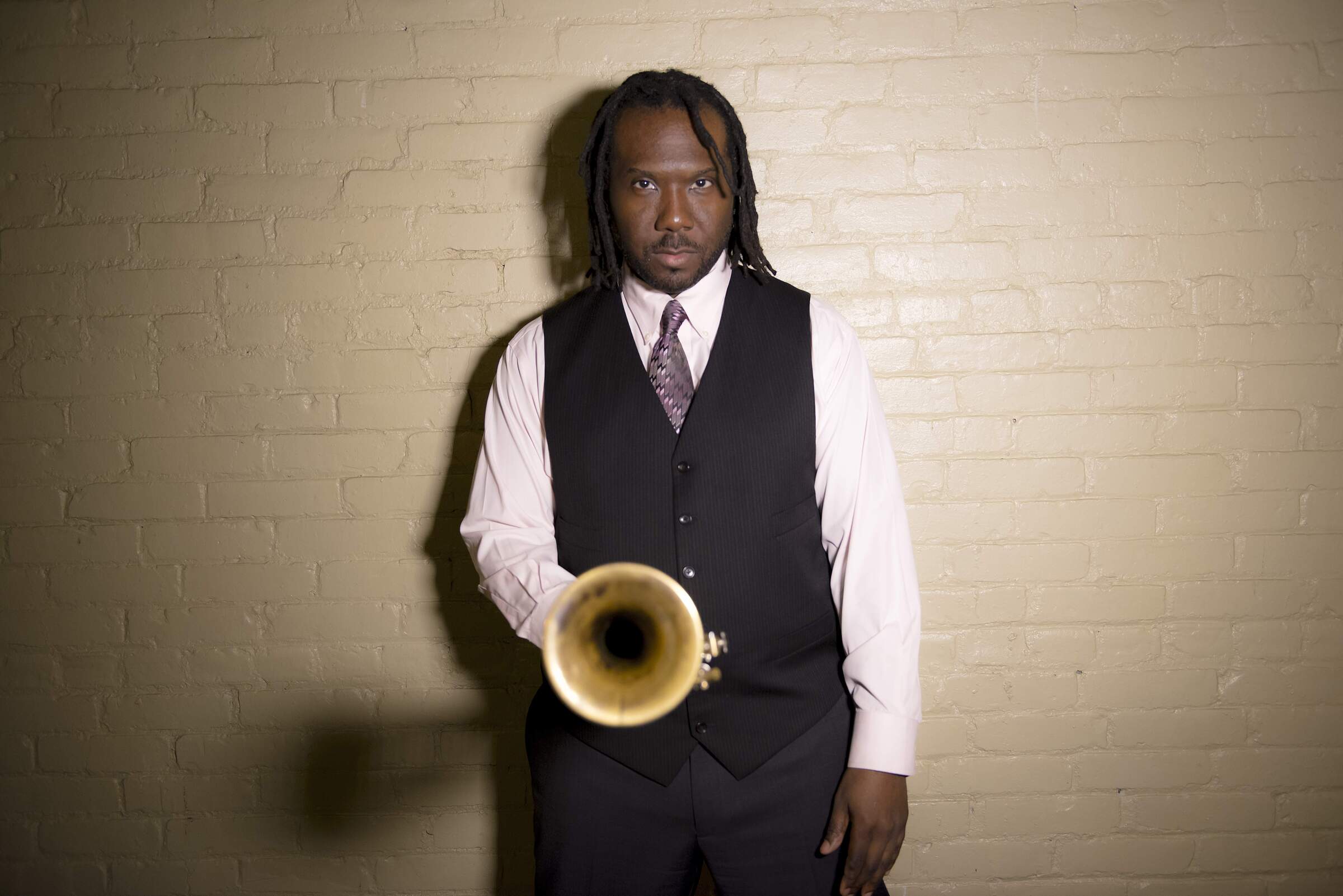‘dB-ish: The Path to Our Truth’ by Darren Barrett | Album Premiere | Interview
The ever-exciting composer and trumpeter Darren Barrett exclusively shares his groundbreaking and avant-garde project, ‘dB-ish: The Path to Our Truth.’
This release kicks off a prolific period for Barrett, who is set to drop two albums simultaneously on July 12: ‘The Get Down 4 Real: Step Step Steppin’,’ a funk/jazz homage to James Brown, and ‘dB-ish: The Path To Our Truth,’ which delves into experimental soundscapes with a blend of electronic and acoustic instruments.
Known for his work on Esperanza Spalding’s GRAMMY-winning album ‘Radio Music Society,’ Barrett continues to push his rich musical career, celebrating his twenty-fifth anniversary as a recording artist. Barrett also plans to release several more projects, including a reggae/jazz mix and a modern jazz album.
“I aim to push boundaries by blending different genres”
Your latest album, ‘dB-ish: The Path To Our Truth,’ stands out for its experimental nature. Could you share the conceptual framework behind this project and how it differentiates from your other albums like ‘Time For Romance’ and ‘The Get Down 4 Real: Step Step Steppin’?’
Darren Barrett: I have many different bands that allow us to explore the harmonic, rhythmic, melodic, and sonic landscape. Each one of these bands lives under a concept name. For example, ‘Time For Romance’ is a project that allows us to explore ballads and play romantically. ‘dB-ish’ is my experimental project that allows us to explore the sonic universe. I start off by writing a basic theme that we begin with, and then we develop the theme into musical conversations. I will then guide the band through sections using the melodies that I play. The melodies provide the band with tempo, key center, and feel. I must say that we have spent a good amount of time developing this concept.
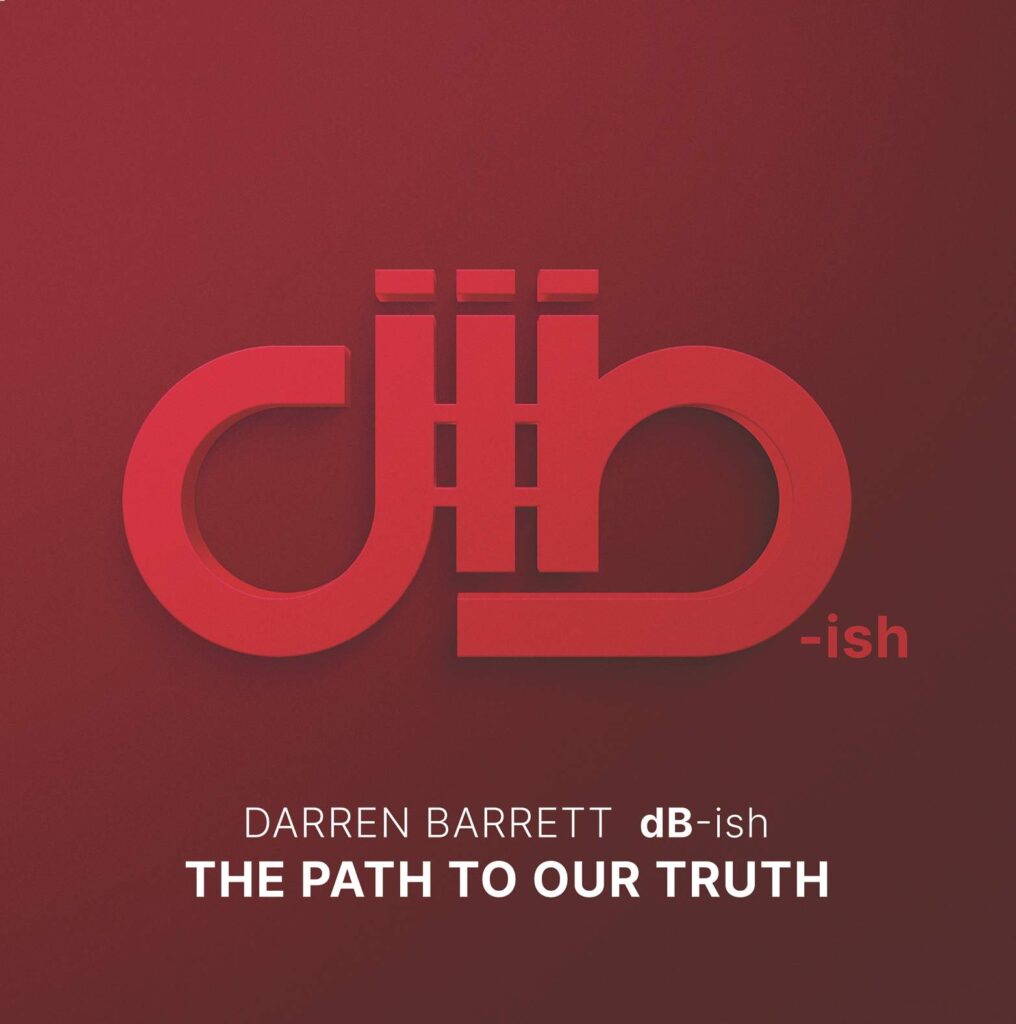
How do you manage to maintain such a high level of creativity across vastly different genres—from smooth jazz to reggae/jazz mix to funk inspired by James Brown? Can you walk us through your creative process when approaching a new project?
I come from a musical family and lived in a household environment where my parents and older siblings listened to a wide variety of different musical styles. This was ingrained in me. Approaching a new project will vary depending on the project that I am tackling. ‘The Get Down 4 Real: Step Step Steppin’ project is based around James Brown backbeats. Our approach to that record involved creating a groove and then building upon it. With ‘dB-ish: The Path To Our Truth,’ I would sketch out an idea and then explore it in real-time with the band. Each band that I lead has a specific purpose, as I just mentioned.
In your view, what direction is jazz heading, and how do you see your work contributing to this evolution?
I believe that Jazz will continue to incorporate other genres as it always has, and it will keep exploring harmony, rhythm, melody, and musical form—all elements inherent in composition. My personal mission statement is to place the trumpet in musical contexts where you might not expect it. I aim to push boundaries by blending different genres, utilizing electronic instruments, pedal effects, and various types of trumpets such as pocket trumpets, quarter-tone trumpets, and hybrid trumpets. I believe that the projects I release and work on are contributing to this evolution.
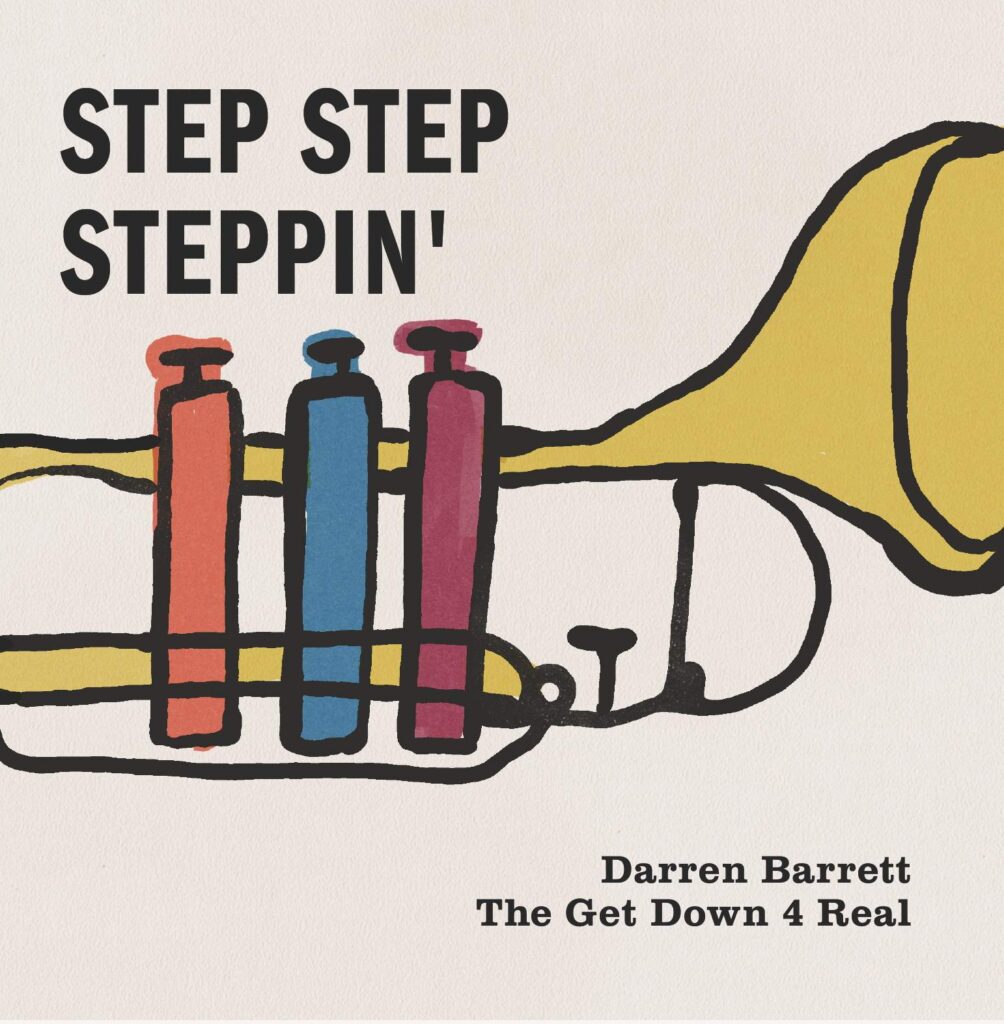
Having studied under jazz greats like Donald Byrd and performed with legends such as Wayne Shorter and Herbie Hancock, how have these experiences shaped your approach to music and your teaching philosophy?
I have been so blessed to have been trained by legendary artists and to have had the opportunity to perform with them. Whenever I interact with musicians of this caliber, I ask many questions about how they achieved their accomplishments. The insights I have gained have certainly guided me towards creativity, consistency, honesty, and spirituality. I pass this knowledge down to my students.
You have projects planned that explore micro-tonality and the Electronic Valve Instrument. What fascinates you about these areas, and what do you hope to achieve or convey through these explorations?
The project exploring micro-tonality is exciting because I believe there is much to discover sonically with this type of trumpet sound.
I feel this instrument’s potential deserves exploration to expand trumpet music and its historical significance. The Electronic Valve Instrument project is significant because it offers trumpet players numerous sonic and compositional avenues, akin to the Flugelhorn. My aim is to establish the EVI as a standalone instrument capable of anchoring entire recordings. I hope to solidify its place in trumpet history.
With a myriad of projects lined up, from ‘90s hip-hop to Detroit house music, what can your fans look forward to in the coming years?
My fans can anticipate projects covering metal music, reggae dub, Afrobeat, Odd Meter, J Dilla beats, extended compositions, children’s recordings, lofi recordings, modern jazz recordings, vocal recordings, and a singer-songwriters project. These are just a few of the projects dB Studios has planned for the future.
This year marks a quarter-century since the release of your first album as a leader, ‘First One Up.’ Looking back, what have been the most pivotal moments in your career?
I believe there have been five pivotal moments. First, studying with my mentor Donald Byrd in 1990 laid the foundation for my entire career. Second, touring with Antonio Hart from 1990 to 1995 honed my performance skills significantly. Third, being part of the inaugural class of the Thelonious Monk Institute of Jazz provided invaluable lessons from legendary musicians. Fourth, winning the Thelonious Monk Competition in 1997 led to my first recording contract and tours with jazz icons like Elvin Jones and Jackie McLean. Fifth, establishing my own recording studio in 2014 and committing to releasing a new recording annually has been pivotal in my artistic journey.
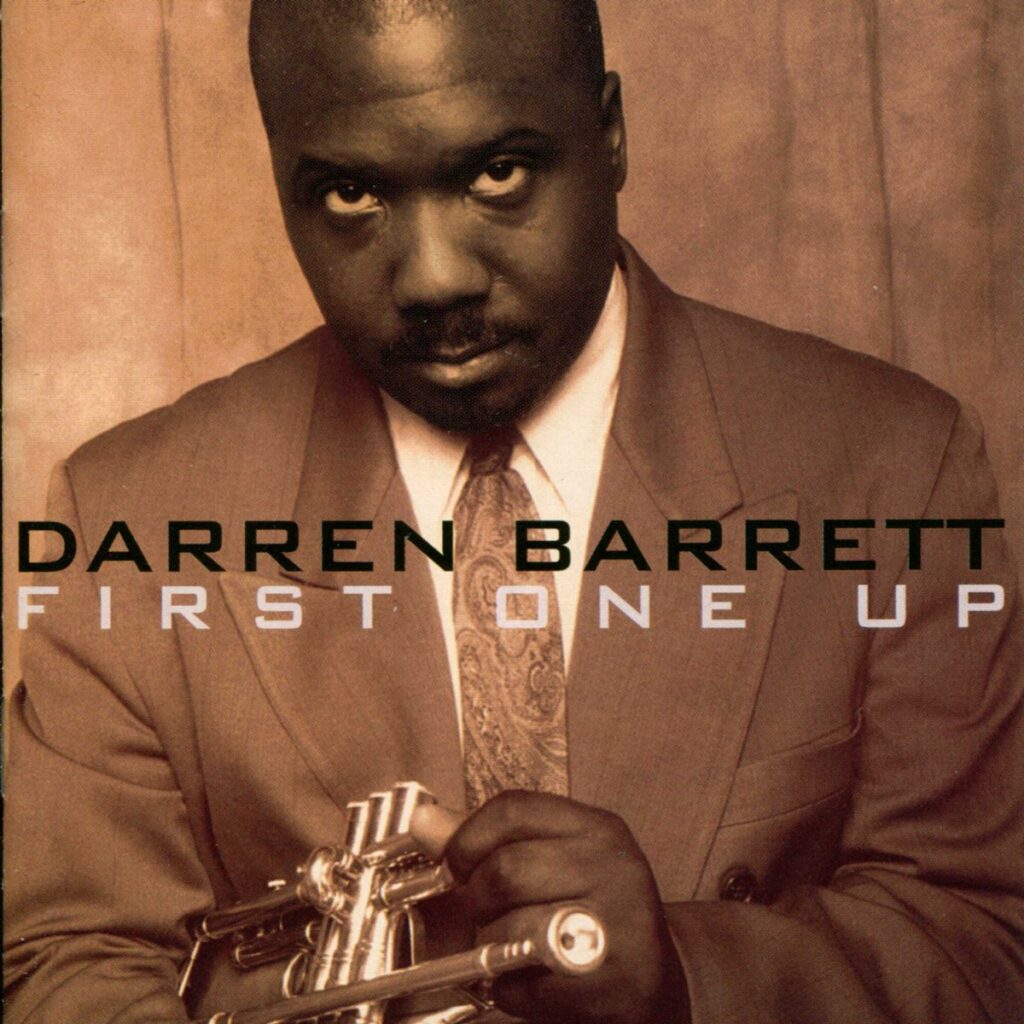
Given the diverse nature of your upcoming projects, how do you plan to translate these recordings into live performances?
Interestingly, the last three projects we released were all recorded live, despite being presented as studio recordings. ‘dB-ish: The Path To Our Truth’ and ‘The Get Down 4 Real: Step Step Steppin’ were captured in front of live audiences. We aim to replicate our sound consistently whether performing live or recording.
You’ve collaborated with a wide range of artists. How do these collaborations influence your own musical style?
Each artist has their unique approach to finding their truth. When I collaborate with someone, I absorb the strengths of their methods and incorporate them into my own work.
The title of your album, ‘dB-ish: The Path To Our Truth,’ suggests a deeper philosophical or personal journey. Can you elaborate on the personal or philosophical themes that run through this album and how they relate to your own life experiences?
This album’s philosophical outlook is deeply interactive and conversational, reflecting real-life interactions characterized by harmony, trust, honesty, and spirituality.
“My music aims to foster harmony, peace, and joy among humanity”
Music often reflects and influences social and cultural contexts. How do your projects address contemporary social issues, and what message do you hope to convey through your music in today’s world?
In today’s world, my music aims to foster harmony, peace, and joy among humanity.
Who are some of the most important players who influenced your own style, and what specific elements of their playing did you find appealing?
Trumpeter Clifford Brown has been a significant influence on me. His fluidity, virtuosity, and feel on the trumpet are simply remarkable. Miles Davis taught me to explore and maintain an open mind. My mentor Donald Byrd provided the foundational education during our five years together, covering jazz improvisation, composition, orchestration, and much more.
Was there a certain moment in your career when you heard something and thought, “this is it”?
Yes, all the time, to answer the question. The first time I heard Clifford Brown, the first time I heard Dizzy Gillespie, the first time I heard Miles Davis, the first time I heard Weather Report, the first time I heard Bob Marley, the first time I heard Jimi Hendrix, the first time I heard Led Zeppelin, the first time I heard Bjork. The list goes on and on.
I’d like to conclude with a quote from Peter Brötzmann. In an interview, when asked about parallels between painting and music, he remarked: “[…] if you play music, it’s out in the clouds and you can’t take it back, and usually you do it together with at least one more person. Working in the studio (alone) on canvas or paper or whatever, you can always put the result into the garbage or stuff it into the oven, and it never has existed. You start from the beginning.” What are your thoughts on this perspective?
Music is in the moment, and I love that, especially being a jazz musician.
The interaction and collaboration with other musicians is awesome.
Music is immediate, and you know right away if you like it or not; it’s very powerful.
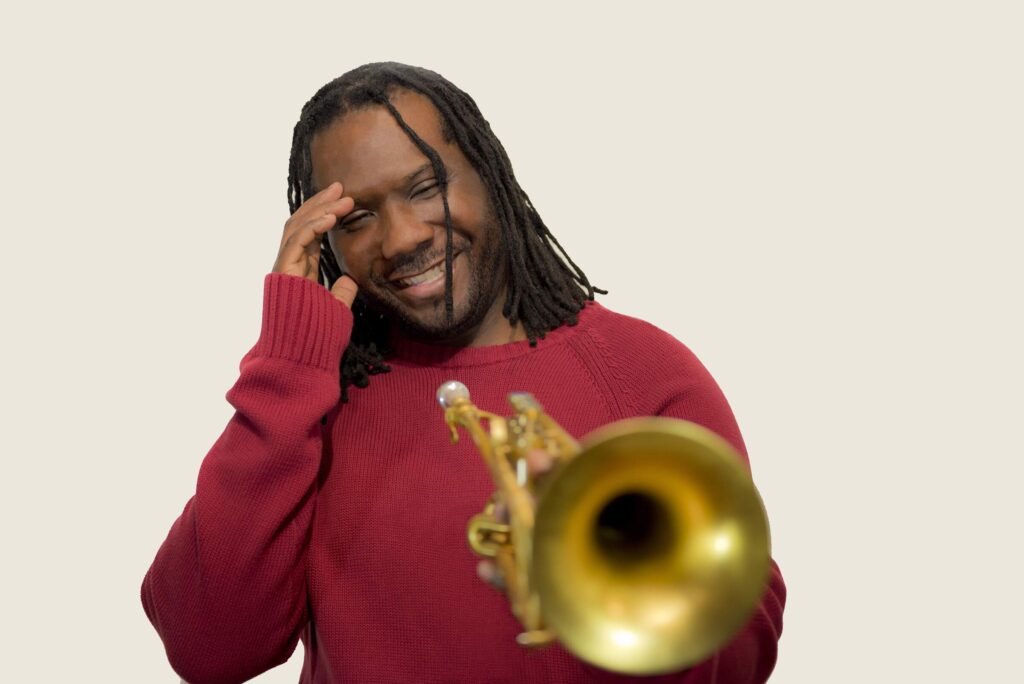
Thank you for taking your time. Last word is yours.
I love music and I love making music. It is so dear to my heart and soul.
It is one thing that can bring us all together in peace and harmony.
Thank you, It’s Psychedelic! Baby Magazine
Klemen Breznikar
Darren Barrett Official Website / Facebook / Instagram / Twitter / YouTube

